5 fitness apps that can help you build muscle in the gym
The only reason to be scrolling between sets
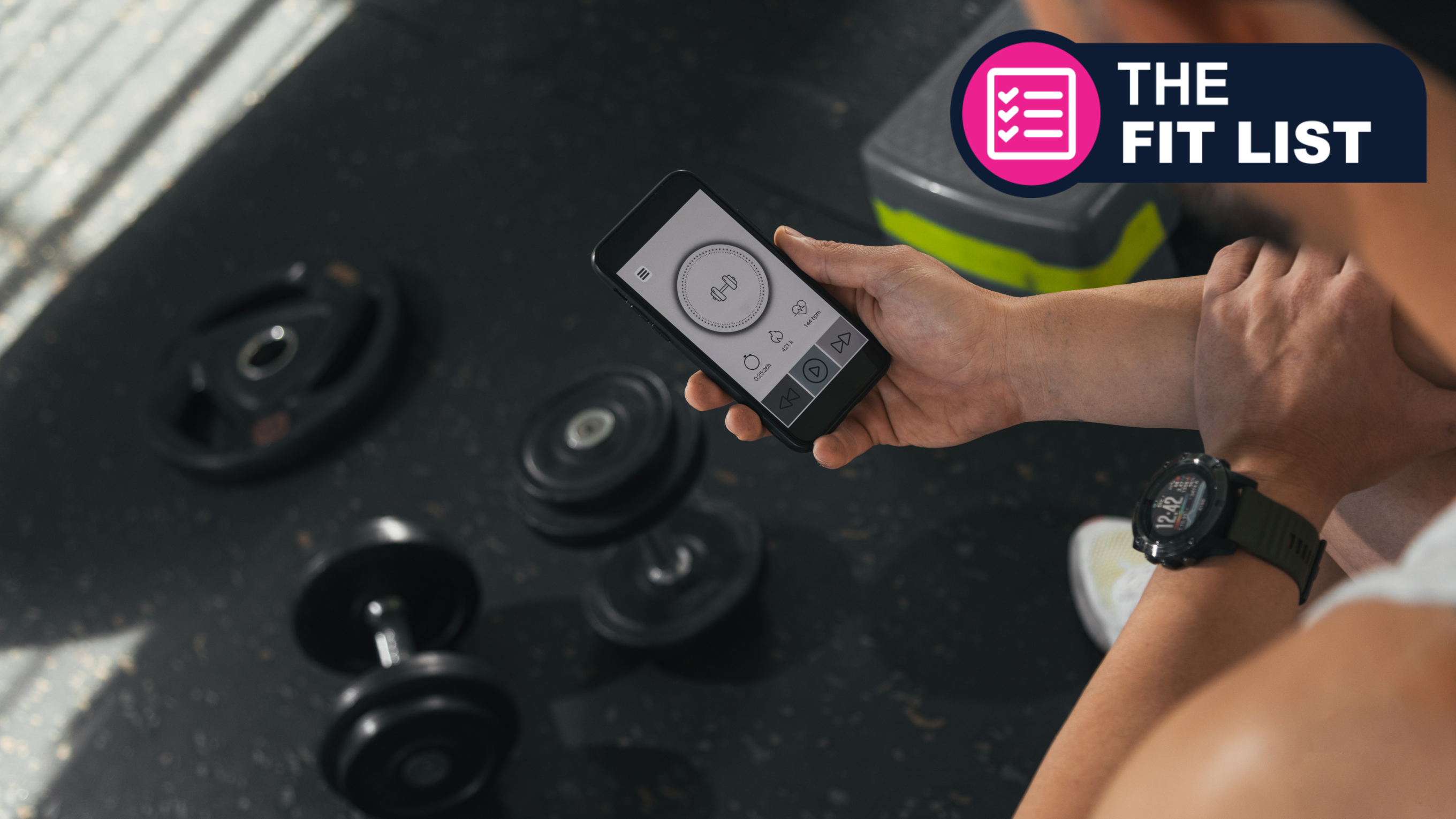
We’ve compiled a comprehensive list of the best fitness apps and keep it up to date, but what constitutes ‘fitness app’ is a broad church these days. You need to be looking for something specific: if you're looking to build muscle in the gym, for example, you don't want Strava or Komoot, which tend to be on most 'best of' lists.
There’s a litany of muscle-building apps out there, and we’ve only scratched the surface of what’s on offer right now, with PUSH named (at time of writing) our best for strength training. Frankly, we’re gobsmacked at the amount of choices on offer for weightlifters: what happens if you don’t get on with PUSH, and want to go to a competitor? Which do you choose?
However, here at TechRadar we’ve tested enough fitness apps to fill, if not a gym, then at least a moderately-sized hard drive. Below are five of the best apps you could download and use today to guide you in your muscle-building journey, to prevent you from losing your whey on your swoly pilgrimage.
1. Fitbod
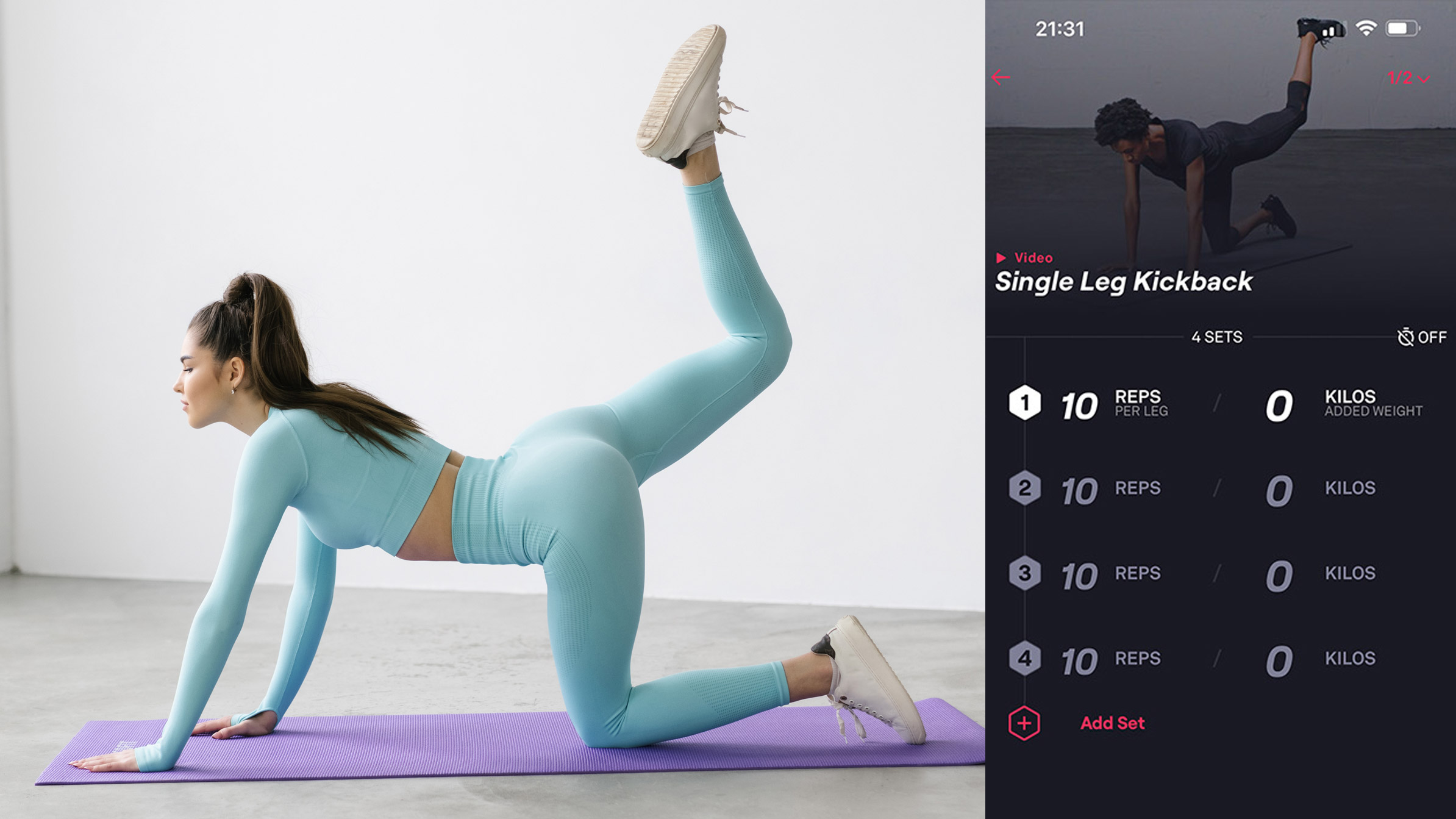
- Cost: $12.99 / approximately £10 / AU$20 per month
- Free version? Limited to three workouts
- Compatible with: iOS, Android
Fitbod was rated our best fitness app overall, with our reviewer stating: “with a huge catalog of exercises tailored to all types of equipment (including equipment-free exercises), it’s a great way to build your fitness over time”.
That sentiment hasn’t gone away. Although the free version amounts to little more than a three-day trial period, Fitbod’s subscription tier is excellent, automatically building a workout for the muscle groups you want to target and the intensity you want to hit using generative AI, drawing on an extensive workout library of hundreds of moves.
It’s less focused on cardio and more suited to beginner lifters than seasoned experts looking for a program, but Fitbod’s certainly got the edge over most of its competitors at the early stages of users’ fitness journeys.
2. Stronglifts 5x5
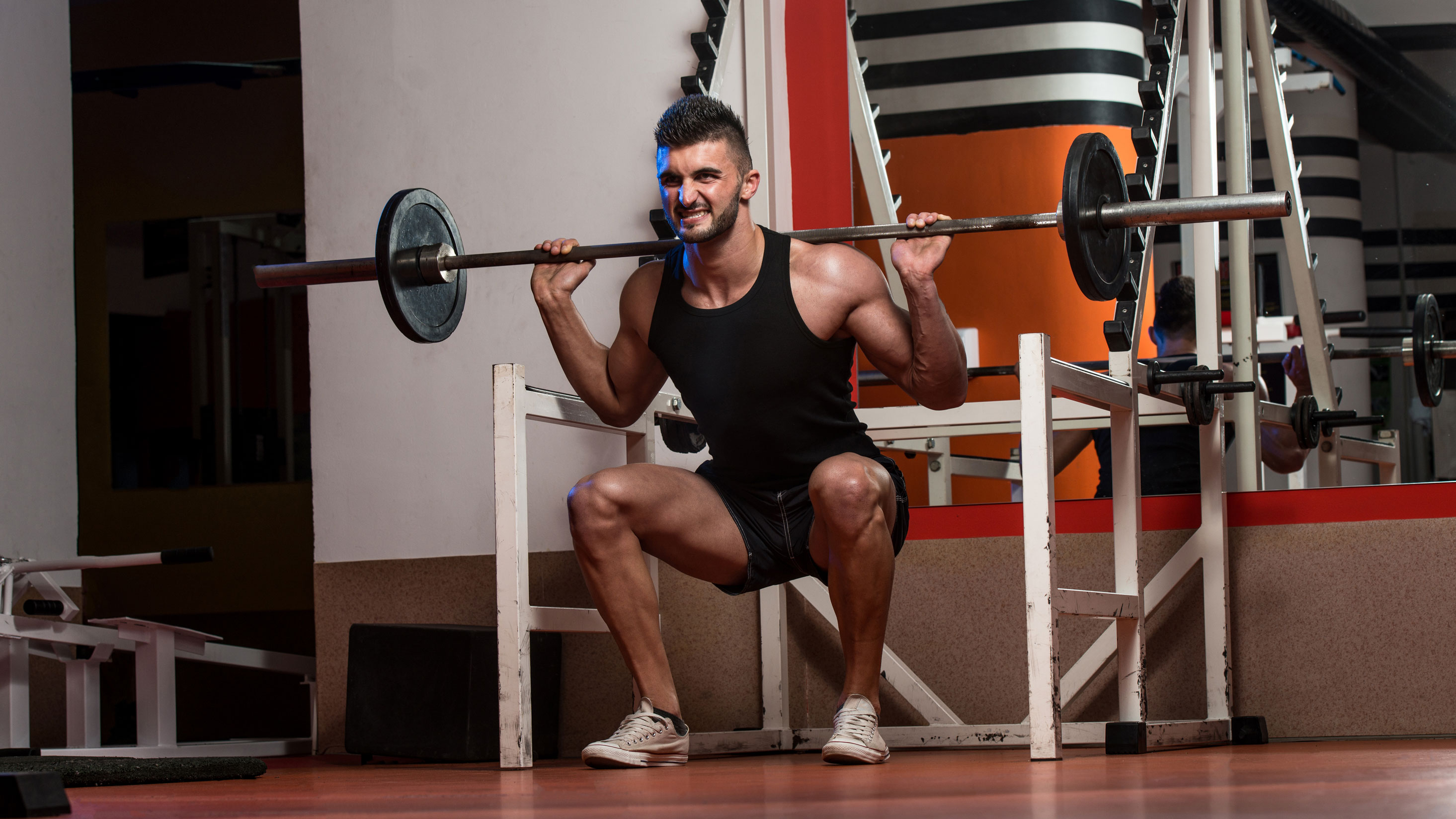
- Cost: $84.99 / approximately £65 / AU$135 for lifetime license
- Free version? 7 days free trial
- Compatible with: iOS, Android
Stronglifts 5x5 is a workout for those looking to shift serious steel. It focuses on five key movements: the barbell bench press, back squat, deadlift, overhead press and barbell row, and looks to get you stronger in those five areas by doing five sets of five reps of each of these five exercises.
Get daily insight, inspiration and deals in your inbox
Sign up for breaking news, reviews, opinion, top tech deals, and more.
By arranging the exercises in specific order and having such a restricted rep/set count, the app is intuitive, easy to use and even comes with a companion app for your best smartwatch. The app will help you work towards and break plateaus in these areas, and it’s really intuitive to use: five reps, mark the set done by tapping it, rinse and repeat.
You can get the app on an annual basis (in the UK, it’s £29.99, around $40 / AU$60) or opt for the lifetime subscription purchasable on the Stronglifts website, for $84.99 / approximately £65 / AU$135. You can get the program in non-app form for free though.
3. StrengthLog
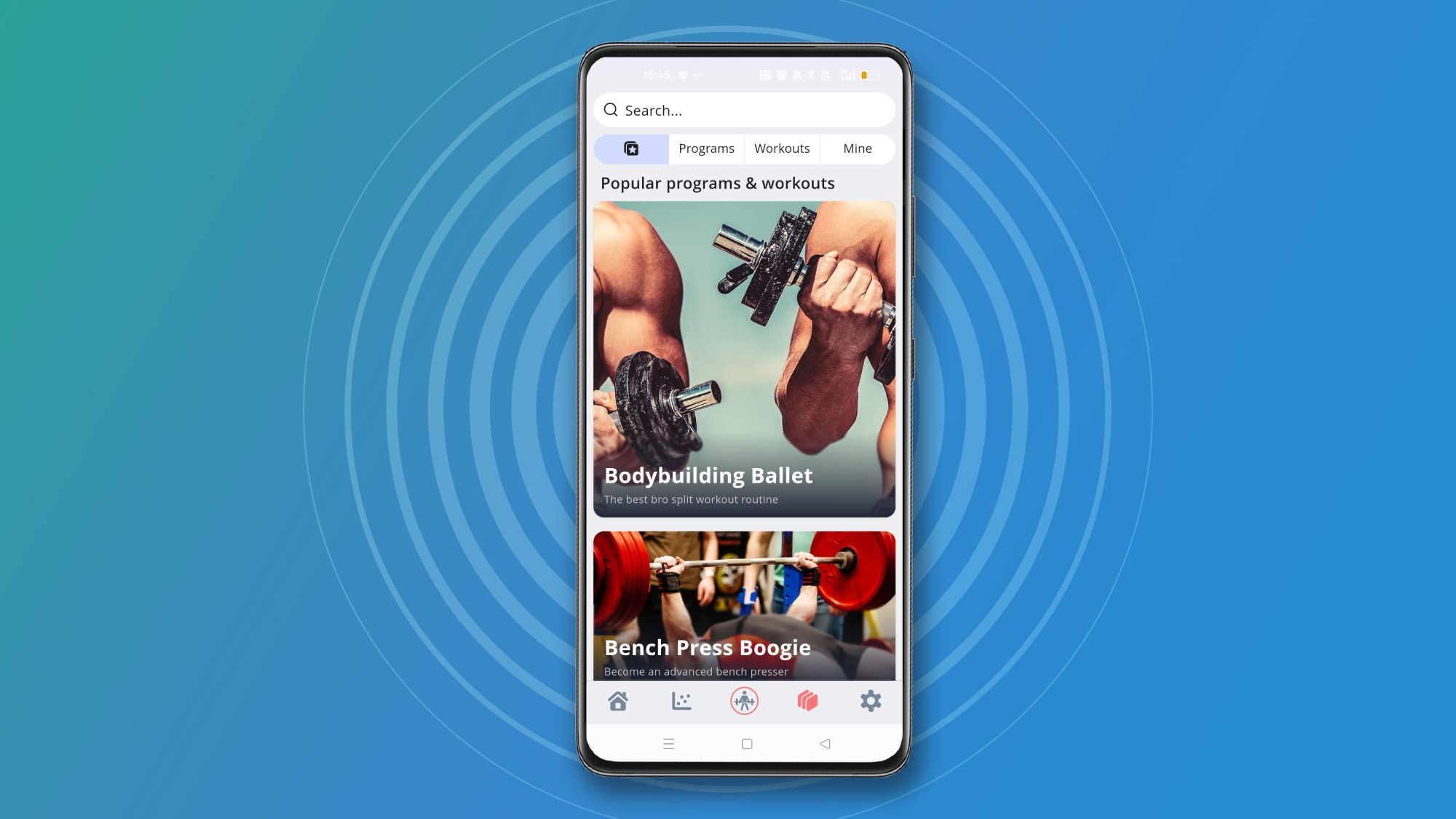
- Cost: Premium features cost $109 / £98.90 / around AU$175 per annum
- Free version? Yes
- Compatible with: iOS, Android
StrengthLog probably has the most comprehensive free features out of any app on this list. Although more complete workout plans are on the premium tier, you can get by perfectly well with just the free version, which includes some basic complete plans, a comprehensive workout builder to make your own, and video guidance for each move.
The library is extensive and suitable for gymgoers, although I found a few more esoteric movements like wide push-ups were missing from its stable. It’s got weight logs too, so you can accurately monitor progress. My one gripe about this app is that before you start a program, check your gym has the right equipment – for example, mine was missing a lying leg curl machine.
4. Hevy
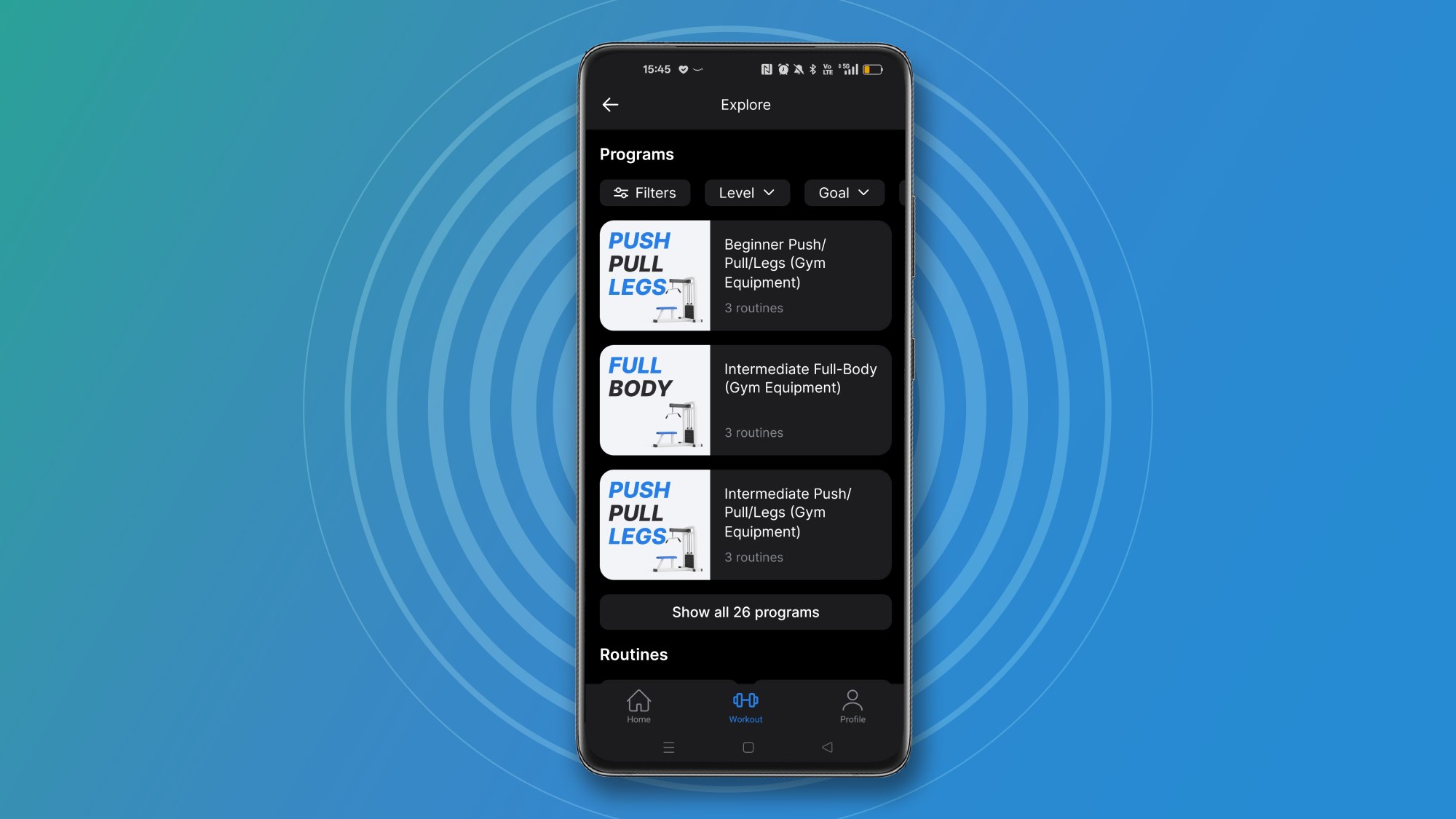
- Cost: $23.99 / £23.49 / AU$39.99 per annum
- Free version? Yes
- Compatible with: iOS, Android
Hevy, highly-recommended online, is a workout-tracking app with some social media elements, allowing you to follow other users like Strava. Like StrengthLog, it’s got plenty of free workout programs to follow even if you don’t pay for the premium version.
It’s quite in-depth, allowing you to log individual breakthroughs on exercises, such as one-rep-maxes, in addition to completing the prescribed sets and reps. Little touches like this make it really useful in the gym, as you might switch things up to test your strength now and again.
Like the others, it’s got little video tutorials, although these are also animated with a heat map of muscles worked.
5. PUSH
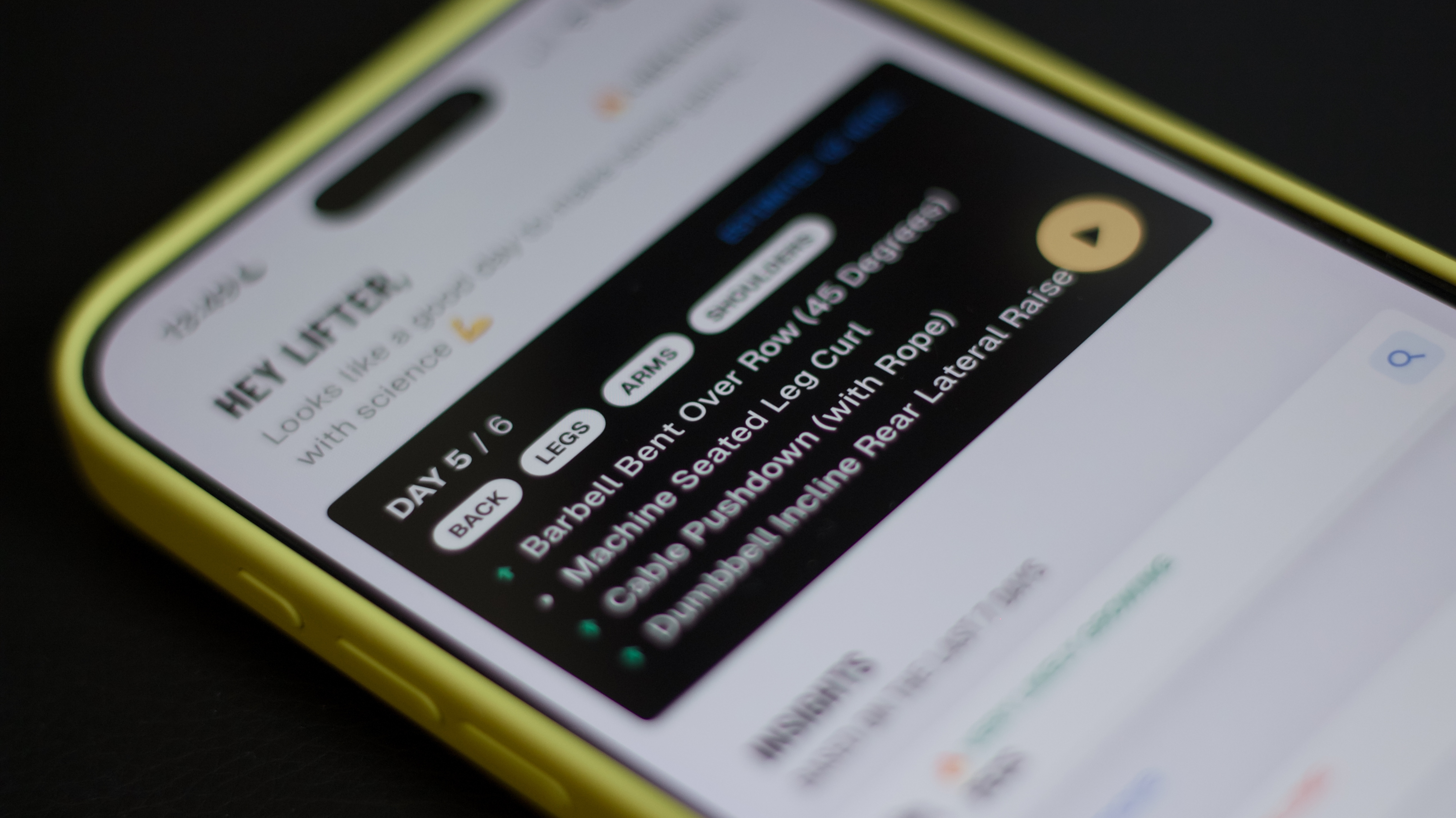
- Cost: $89.99 / £89.99 / AU$144.99 a year
- Free version? Trial only
- Compatible with: iOS, Android
Last but not least is our pick for best fitness app for lifters, PUSH. It’s an app that uses AI to automatically generate and modulate your exercise plan, to great effect. In our PUSH review, we called it “a brilliantly designed app with very few flaws”.
We really lauded its rest-tracking, and the interface is a joy to use. If you find yourself stalling, the AI will recommend ‘plateau breaker’ exercises to help you push past it. Unfortunately, its annual subscription is very expensive when paired with some of its contemporaries, which will make it prohibitive to some.
You might also like...

Matt is TechRadar's expert on all things fitness, wellness and wearable tech.
A former staffer at Men's Health, he holds a Master's Degree in journalism from Cardiff and has written for brands like Runner's World, Women's Health, Men's Fitness, LiveScience and Fit&Well on everything fitness tech, exercise, nutrition and mental wellbeing.
Matt's a keen runner, ex-kickboxer, not averse to the odd yoga flow, and insists everyone should stretch every morning. When he’s not training or writing about health and fitness, he can be found reading doorstop-thick fantasy books with lots of fictional maps in them.
You must confirm your public display name before commenting
Please logout and then login again, you will then be prompted to enter your display name.